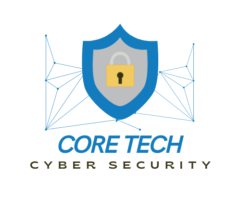As the demand for skilled cybersecurity professionals grows, many people are turning to online courses to gain the knowledge and skills necessary to enter or advance in the field. However, one common question that arises is whether to choose free or paid cybersecurity courses. Both options come with their own advantages and disadvantages, and selecting the right one depends on factors like your budget, learning objectives, and time commitment.
In this article, we’ll explore the differences between free and paid cybersecurity courses to help you decide which is best for you.
1. Free Cybersecurity Courses
Free cybersecurity courses are an excellent option for individuals who are new to the field, have budget constraints, or want to sample a variety of topics before committing to more in-depth learning.
Advantages of Free Cybersecurity Courses:
- Cost-Effective: Free courses allow you to learn without any financial commitment, making them accessible to everyone.
- Introductory Learning: Many free courses focus on foundational cybersecurity concepts, such as network security, encryption, and malware protection, which are essential for beginners.
- Flexibility: These courses are often self-paced, allowing learners to study when they have the time.
Popular Free Cybersecurity Course Platforms:
- Cybrary: Offers free beginner courses on a variety of cybersecurity topics, from ethical hacking to network defense.
- OpenLearn by The Open University: Provides free introductory cybersecurity courses focused on key concepts and best practices.
- Coursera (Audit Mode): While many Coursera courses have paid certifications, learners can audit many cybersecurity courses for free and still access most content.
Disadvantages of Free Cybersecurity Courses:
- Limited Depth: While free courses are great for beginners, they often lack the depth needed for advanced topics or specialized certifications.
- No Certification: Most free courses do not provide a formal certification upon completion, which can be important when job hunting.
- Limited Support: Free courses may lack direct access to instructors, practical labs, or hands-on projects, which are vital for developing real-world skills.
2. Paid Cybersecurity Courses
For those looking to dive deeper into cybersecurity, obtain professional certifications, or fast-track their career, paid courses offer a range of features and benefits that free courses may not.
Advantages of Paid Cybersecurity Courses:
- In-Depth Learning: Paid courses often provide a comprehensive curriculum that covers both foundational and advanced topics in greater detail.
- Hands-On Labs: Many paid programs include virtual labs, simulations, and interactive exercises to help you gain practical experience in real-world scenarios.
- Certification: Paid courses often come with a recognized certification, such as CompTIA Security+, Certified Ethical Hacker (CEH), or CISSP, which can significantly enhance your job prospects.
- Instructor Support and Networking: Paid courses frequently offer access to expert instructors, mentors, and a community of learners, which can help with understanding difficult concepts and expanding your professional network.
Popular Paid Cybersecurity Course Platforms:
- Udemy: Offers affordable, in-depth cybersecurity courses with lifetime access to course materials and certification of completion.
- Pluralsight: Known for its advanced cybersecurity topics, Pluralsight provides courses with hands-on labs and practical assessments for professionals looking to enhance their skills.
- EC-Council (Certified Ethical Hacker): One of the most respected certifications in the industry, the CEH course teaches advanced hacking techniques and defense strategies.
Disadvantages of Paid Cybersecurity Courses:
- Cost: Paid courses can be expensive, especially if you’re looking to earn a recognized certification or access premium resources.
- Time Commitment: Many paid courses require a significant time commitment, especially if you’re working toward certification, making it difficult for individuals with busy schedules.
- Overlaps with Free Content: In some cases, the content of paid courses may overlap with what is available in free courses, so it’s important to research and choose wisely.
3. Which Option is Best for You?
When to Choose Free Cybersecurity Courses:
- If You’re a Beginner: Free courses are perfect for those just starting out in cybersecurity and looking to explore the basics without financial commitment.
- If You’re Testing the Waters: Free courses allow you to explore different cybersecurity domains, such as ethical hacking, network security, or cloud security, to see where your interests lie.
- If You Have a Tight Budget: If finances are a concern, starting with free courses can provide you with foundational knowledge before deciding whether to invest in a paid program.
When to Choose Paid Cybersecurity Courses:
- If You Want Certification: If your goal is to obtain a recognized certification that will boost your career prospects, a paid course is often necessary.
- If You Need Practical Experience: Paid courses frequently offer access to hands-on labs and simulations, which are critical for developing real-world skills.
- If You’re Already in the Field: Professionals looking to advance their careers, specialize in a particular area, or meet job requirements may benefit from the depth and structure of paid courses.
Conclusion: Free vs. Paid Cybersecurity Courses
Both free and paid cybersecurity courses offer valuable opportunities for learning, but the right option depends on your goals, experience level, and budget. Free courses are great for exploring the basics and getting started, while paid courses provide deeper, hands-on learning and certifications that can significantly enhance your career prospects.
